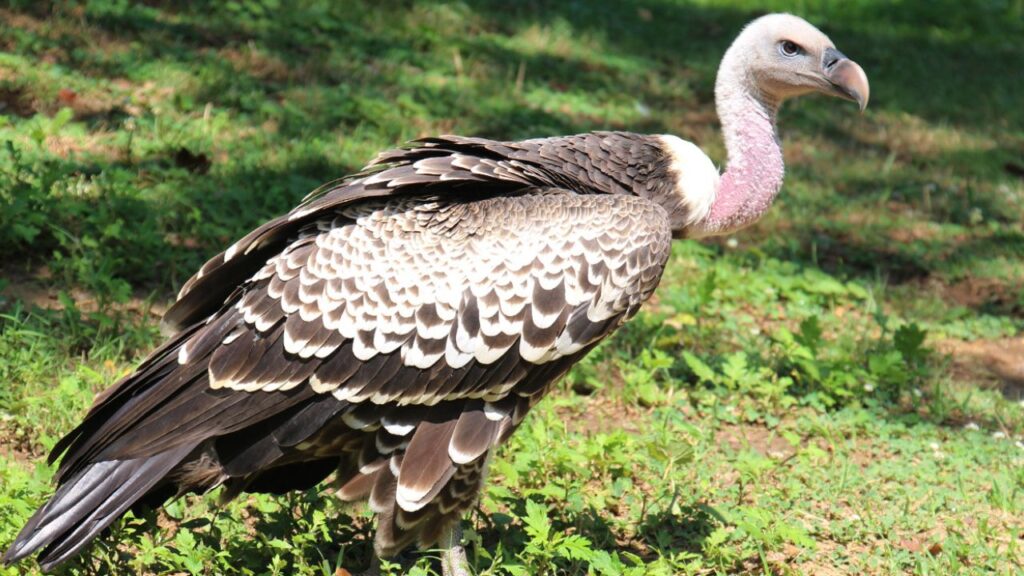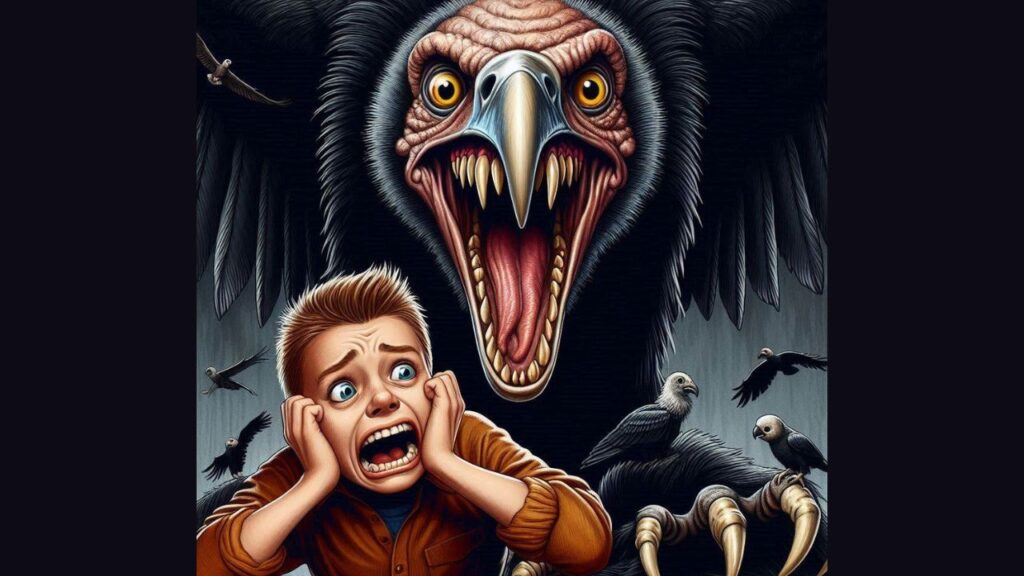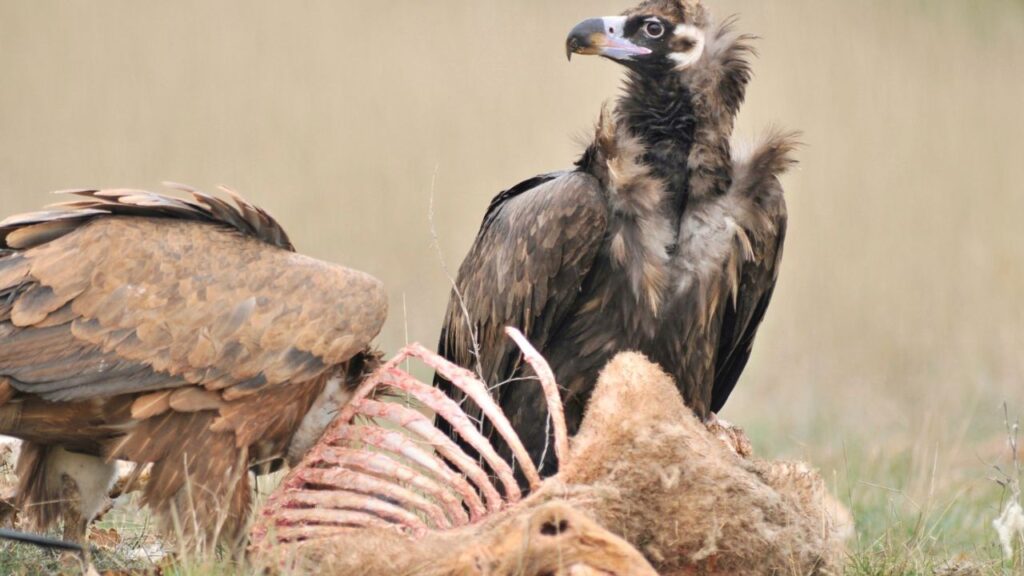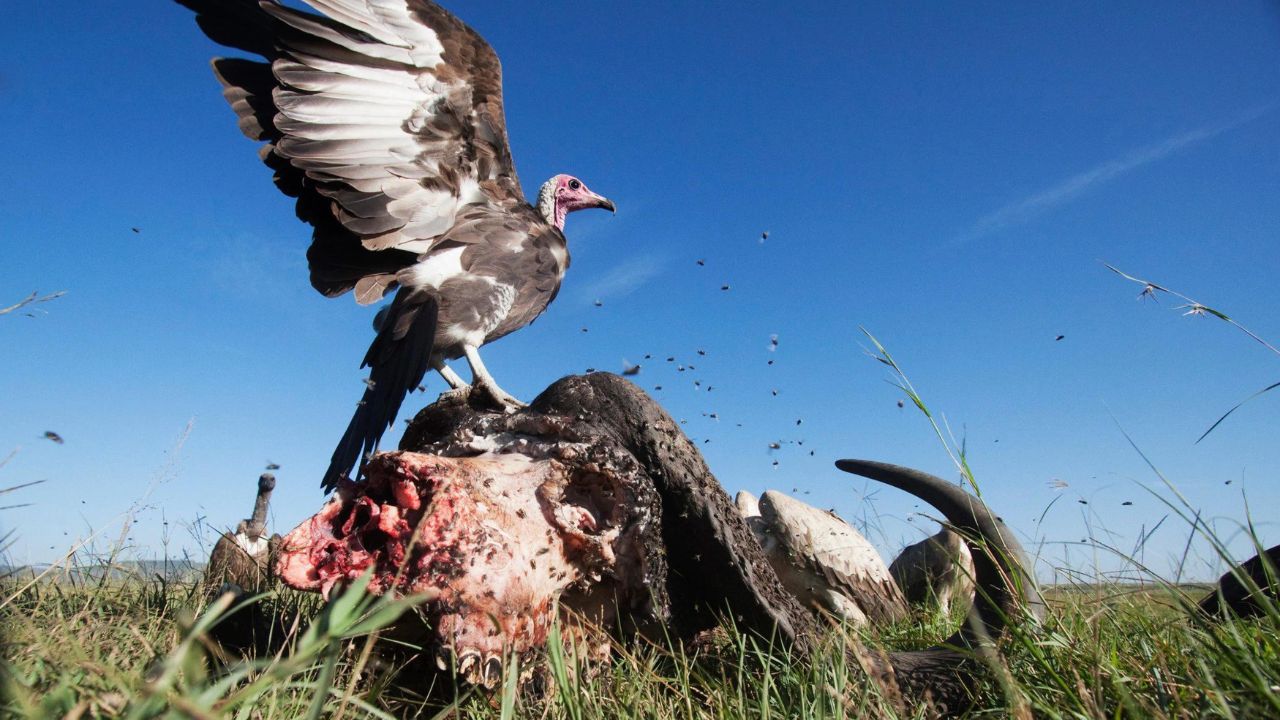Will Vultures Attack Humans? Vultures do not attack humans as they are scavengers that feed on dead animals.
Vultures are often portrayed in movies and literature as ominous creatures, circling ominously above, waiting for death.
This portrayal has led to a common fear and misunderstanding about these birds. Many people wonder, “Will vultures attack humans?”
In this blog post, we’ll delve into the reality of vulture behavior, their role in the ecosystem, and whether there is any legitimate reason to fear these fascinating birds. Vultures are often misunderstood due to their association with death and decay.
They are frequently depicted as harbingers of doom, which has contributed to a widespread fear and mistrust of these birds. However, the truth about vultures is far more complex and interesting.
By exploring their biology, behavior, and ecological role, we can gain a better understanding of these essential creatures and dispel some of the myths that surround them.
Contents
- 1 Who Are Vultures?
- 2 Vultures’ Diet and Feeding Habits
- 3 Can Vultures Attack Humans?
- 4 Why Vultures Do Not Attack Humans
- 5 Instances of Human Interaction
- 6 Vultures and Human Corpses
- 7 Common Misconceptions and Myths
- 8 Are Vultures Dangerous?
- 9 Benefits of Vultures to Humans
- 10 FAQs
- 11 Conclusion: Will Vultures Attack Humans?
Who Are Vultures?
Vultures are large birds of prey that primarily feed on carrion, which are the remains of dead animals.
They are divided into two main groups: New World vultures, found in North and South America, and Old World vultures, found in Africa, Asia, and Europe.
Despite their similar lifestyles, these groups are not closely related and have evolved similar traits independently, a phenomenon known as convergent evolution.
New World Vultures
New World vultures, such as the Turkey Vulture and the Black Vulture, belong to the Cathartidae family. [Will Vultures Attack Humans?]
They are known for their excellent sense of smell, which they use to locate carcasses from great distances.
The Turkey Vulture, for instance, has large nostrils that allow it to detect the scent of decay from miles away.
These birds play a crucial role in their ecosystems by cleaning up dead animals and preventing the spread of disease.
Old World Vultures
Old World vultures, like the Griffon Vulture and the Egyptian Vulture, belong to the Accipitridae family and rely more on their keen eyesight to find food.
These vultures are found in a variety of habitats, from the savannas of Africa to the mountains of Asia.
They are often seen soaring high in the sky, using thermal currents to glide effortlessly as they search for carcasses.
Despite their fearsome appearance, Old World vultures are essential for maintaining healthy ecosystems.

Vultures’ Diet and Feeding Habits
Vultures are obligate scavengers, meaning they rely almost entirely on carrion for their diet.
This scavenging behavior plays a crucial role in the ecosystem, as vultures help to quickly dispose of animal remains that could otherwise spread disease.
Finding Food
Vultures have several adaptations that make them highly efficient scavengers.
New World vultures, like the Turkey Vulture, have a highly developed sense of smell that allows them to detect the gases produced by decaying bodies from miles away.
Old World vultures, on the other hand, have exceptional vision and can spot a carcass from high in the sky. They often rely on the movements of other scavengers, such as hyenas or jackals, to locate food sources.
Feeding Mechanisms
Vultures have strong, hooked beaks designed for tearing flesh. [Will Vultures Attack Humans?]
They often begin feeding on the softer parts of a carcass, such as the eyes and anus, before moving to tougher tissues.
Their stomachs contain powerful acids that can digest even bones and help neutralize harmful bacteria and toxins found in decaying meat.
This ability to consume diseased or decomposing flesh without ill effects makes vultures unique among birds of prey.

Can Vultures Attack Humans?
Physical Capabilities of Vultures
Vultures are not equipped to attack humans. Unlike birds of prey such as eagles and hawks, vultures lack strong talons for grasping and killing live prey.
Their beaks, while sharp, are adapted for tearing apart dead tissue rather than inflicting damage on living creatures.
Vultures’ feet are more suited to walking than grasping, making them inefficient at catching or holding onto live prey.
Behavioral Tendencies
Vultures are naturally wary of humans and will typically avoid any confrontation. They are not aggressive birds and have no incentive to attack humans, as their diet consists entirely of dead animals.
In rare cases where vultures are found near humans, it is usually because they are attracted to a food source, such as roadkill or refuse.
Even then, they are more likely to flee than to engage with humans.
Why Vultures Do Not Attack Humans
Vultures do not see humans as a food source. Their evolutionary adaptations have led them to be efficient scavengers, focusing on carrion rather than live prey.
The idea that vultures would attack a living human is more myth than reality. [Will Vultures Attack Humans?]
While vultures might investigate a human if they appear lifeless, they will quickly realize that humans are not their typical food source and will move on.
Instances of Human Interaction
The primary interactions between vultures and humans occur when vultures scavenge in areas populated by people.
For example, they might be seen feeding on roadkill or garbage near human settlements.
In some cases, vultures may roost on buildings or other structures, leading to concerns about property damage from their droppings.
These interactions are usually harmless, though they can cause some inconvenience or minor damage.

Vultures and Human Corpses
Do Vultures Eat Human Corpses?
While vultures will eat human corpses if they come across them, this behavior is not common and typically occurs in remote areas where human remains are left exposed.
In some cultures, such as the Tibetan practice of sky burial, vultures are intentionally used to dispose of human bodies in a natural way.
In these practices, vultures are seen as important participants in the cycle of life and death.
Cultural Practices
Sky burials involve placing the body of the deceased on a mountaintop to be consumed by vultures. [Will Vultures Attack Humans?]
This practice is rooted in Buddhist beliefs about the impermanence of life and the desire to give back to nature.
Vultures play a vital role in these traditions, and their presence is seen as beneficial rather than harmful. These cultural practices highlight the positive relationship between humans and vultures in certain societies.
Common Misconceptions and Myths
Myths About Vultures Attacking Humans
One common myth is that vultures will swoop down and carry off small children or pets. This is simply not true.
Vultures do not have the physical strength or inclination to attack living animals, especially humans.
Their primary focus is on finding and consuming carrion. These myths are often perpetuated by sensational stories or misunderstood behaviors observed in the wild.
Clarifying the Reality
Scientific studies and observations have consistently shown that vultures are harmless to living humans. They do not possess the tools or the behavior patterns necessary to pose a threat.
The stories of vultures attacking or endangering people are rooted in misunderstandings and fear. [Will Vultures Attack Humans?]
By understanding the true nature of vultures, we can appreciate their role in the environment and dispel these unfounded fears.
Are Vultures Dangerous?
Potential Dangers
While vultures are not dangerous in terms of attacking humans, they can cause other types of problems.
For example, large roosts of vultures can lead to property damage due to their acidic droppings.
In some cases, vultures might be considered a nuisance if they gather in significant numbers near human habitats.
Their droppings can damage roofs, vehicles, and other structures, leading to costly repairs.
Vultures’ Defense Mechanisms
Vultures have a unique defense mechanism: they can vomit as a means of deterring predators. This vomit can be quite foul-smelling and is often aimed at potential threats.
While this behavior might be unpleasant, it is not harmful to humans. In fact, it serves as a reminder of the vulture’s role in the ecosystem and the lengths to which they will go to protect themselves.
Benefits of Vultures to Humans
Ecological Importance
Vultures play a crucial role in maintaining healthy ecosystems. By consuming dead animals, they help prevent the spread of diseases that could arise from decomposing carcasses.
This scavenging activity also recycles nutrients back into the ecosystem, supporting other forms of life. [Will Vultures Attack Humans?]
Without vultures, the buildup of animal remains could lead to outbreaks of disease and a decline in environmental health.
Disease Prevention
Without vultures, carcasses would take much longer to decompose, leading to increased risks of disease outbreaks.
Vultures’ efficient disposal of dead animals helps control populations of disease-causing organisms and insects.
Their presence is essential for the balance of nature, as they reduce the chances of disease transmission among wildlife and even humans.
See Also: Do Hummingbirds Attack Humans? Unexpected Aggressors!
FAQs
1. Do vultures ever attack live animals?
Vultures primarily feed on dead animals and rarely, if ever, attack live animals. They lack the physical adaptations to hunt live prey effectively.
2. Can a vulture carry off a small child or pet?
No, vultures do not have the strength or behavior to carry off small children or pets. They are scavengers that focus on dead animals.
3. Why do vultures circle in the sky?
Vultures circle in the sky to gain altitude using thermal currents. This behavior helps them cover large areas while searching for carrion.
4. What should you do if you encounter a vulture?
If you encounter a vulture, there is no need to be alarmed. Simply give it space, as vultures are not aggressive and will likely fly away if approached.
5. Are there any species of vultures that are aggressive?
Most vulture species are not aggressive. While Black Vultures can sometimes be more assertive, they do not pose a significant threat to humans.
Conclusion: Will Vultures Attack Humans?
Vultures are fascinating and essential creatures that play a vital role in our ecosystems.
Despite their fearsome reputation, they are harmless to humans and contribute significantly to maintaining ecological balance.
Understanding the true nature of vultures can help dispel myths and encourage appreciation for these remarkable birds.
By protecting vulture populations, we can ensure they continue to provide their invaluable services to our environment.

Hello, I am Rosa Ellis, a mother of two and a wildlife blogger. I grew up in New York City, but I love exploring forests. I’ve traveled to places like Yellowstone National Park and the Amazon Rainforest to see animals up close. I know a lot about animal behavior and which animals can be dangerous to humans. Thanks for visiting my blog!

